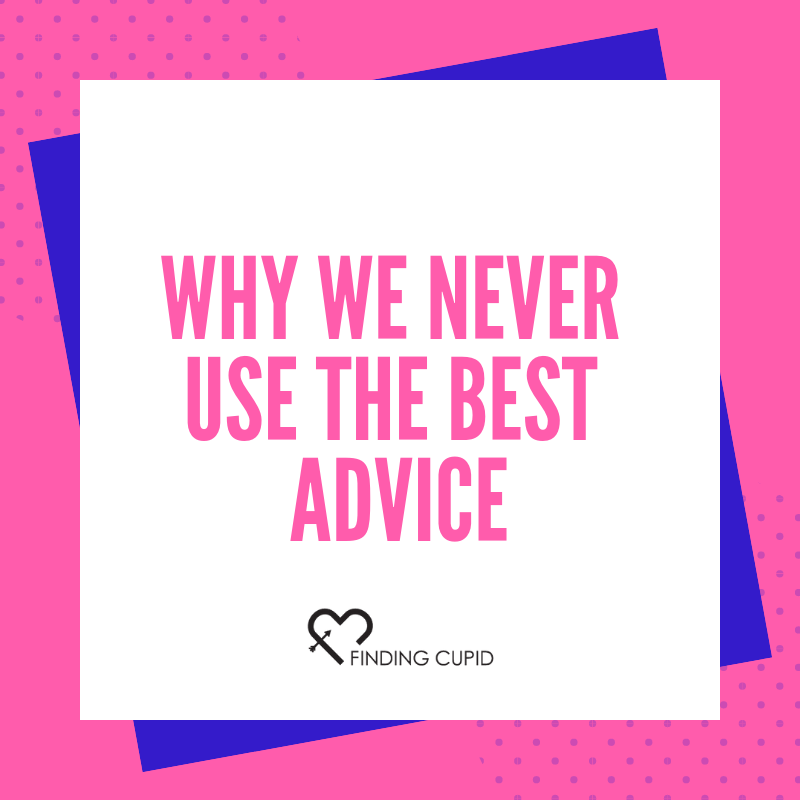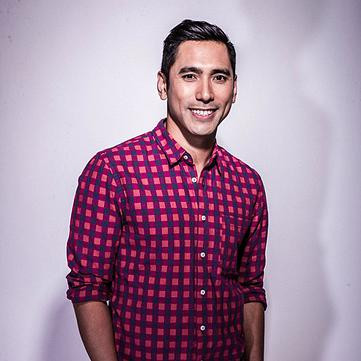
There is an old saying that goes " You can lead a horse to water, but you can't make it drink." This is true of today's modern dater.
They are fed mass amounts of advice from all directions; friends, family, the internet, Siri, and social media. Yet, as bountiful as the harvest of really good advice there is out there, they still don't listen.
In the book "Sidetracked" by Harvard scientist, Francesca Gino, she and her colleagues found that despite evidence from hundreds of studies over the past two decades showing our decisions greatly benefit from another pair of eyes, we routinely sabotage ourselves by refusing to take advice.
But let's take her study and fold it into the world of dating so you understand why daters are not receptive to listening, even if it is really good advice.
Below are excerpts from her book and bm breakdown on how daters can learn how to be better prepared to take good advice.
We Are In Control of Love
Showing that we are in control of our decision making in relationships means that we are experts in our own lives. But according to the study, when we take advice from another person we often feel like we are not in charge and therefore less in control. This feeling of of lack of control leads us to feel incompetent and we never want to project that we feel this way about our lives or relationships, hence the lack of open mindedness to take advice.
I totally get it, we want to prove to everyone that we are smart, we make good decisions and that we are in control for our lives. But the truth is, none of us are experts in most things and we need some good advice every now and then to accomplish the task at hand. Now, just because you seek or take advice, doesn't mean you are less in control of any other aspects in life. You just need help in this particular category.
This point is proven with many other scenarios like getting a trainer at a gym, getting a tutor at school or playing a sport. Release the control and allow the good advice to flow.
The Anger Effect vs. The Gratitude Solution
Whether or not we take counsel also has a lot to do with the peaks and valleys of our moods. In another experiment, Gino and Maurice Schweitzer at the University of Pennsylvania made one group of people feel angry by watching a short movie clip about a man being bullied. Others were induced to feel gratitude by watching a touching clip in which a man received an unexpected gift from his coworkers.The group exposed to better feelings were more open to advice than the ones exposed to the more negative scenario.
So what does this mean for daters? A ton.
First, we need to make sure that we allow our minds to be open to advice and change. I suggest that you properly clear your head with some Yoga, a massage, or even watching one of your favorite tv shows or movies. Anything to relax your mind or put you in a happy place.
Once this is done, schedule time to sit with a friend and talk through what you need help with.
The Anxiety Paradox
Not all negative emotions drive us away from advice. Anxiety can make us more prone to listen. Imagine for a moment that I asked you to estimate the value of the coins sitting in a glass jar in front of you. You will have access to an advisor to help you estimate. Will you take the advice? According to another series of experiments Gino and her colleagues found that if you’re feeling anxious you will probably take that advice. The rub is that “anxious individuals rely heavily on advice, even when the advice is bad.”
As daters, we need to be aware of the pressure that we may be under. If the scenario for example is, needing find a date to a work event or a wedding and their is pressure in this decision, we may be take advice from someone that may or may not be good. You may be convinced into taking back an ex-boyfriend because of said pressure. It's all about the anxiety rooted in the decision.
So daters, be conscious of your situation and if "the paradox" is being a positive or negative influence.
The Cooperation Solution
Even when people felt powerful, knowing they would eventually be cooperating with their advisor on a mutually beneficial task virtually eliminated the power problem. Cooperation fosters trust which fosters even more cooperation. Cooperation also tends to increase positive emotions, which naturally encourages us to respect the opinions of others, while also giving our own judgments a fair hearing.
At the end of the day, we must surround ourselves with people who we can trust and who we know only have good intentions in giving us advice. I of course recommend experts in the dating/relationship worlds like Matchmakers, Dating Coaches and yes, even therapists. Can best friends or family also work? Yes, as long as you have a positive relationship with them and they have a proven track record of giving good advice. If not, seek out better experts.
When we find these powerful people, you will find that you cooperate more with them and are open to taking all their advice.

David Cruz III
David is the Founder and Creative Director of Finding Cupid. He has been writing about Dating & Relationships for the last ten years and is a contributor to Huffington Post, Frontiers Media, Your Tango and many other publications. David can often be found in the greeting card aisle searching for the ultimate love card, or a bakery making bad decisions for himself.
Follow David on
Twitter & Instagram: @DavidCruzTMM
Snapchat: DavidCruzIII


